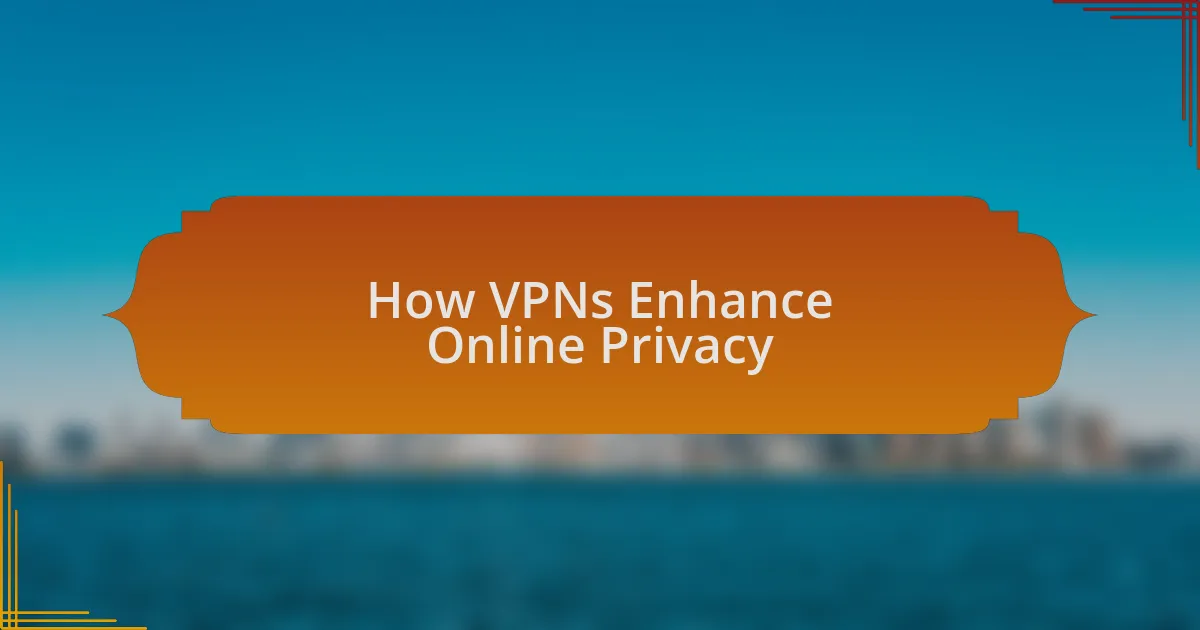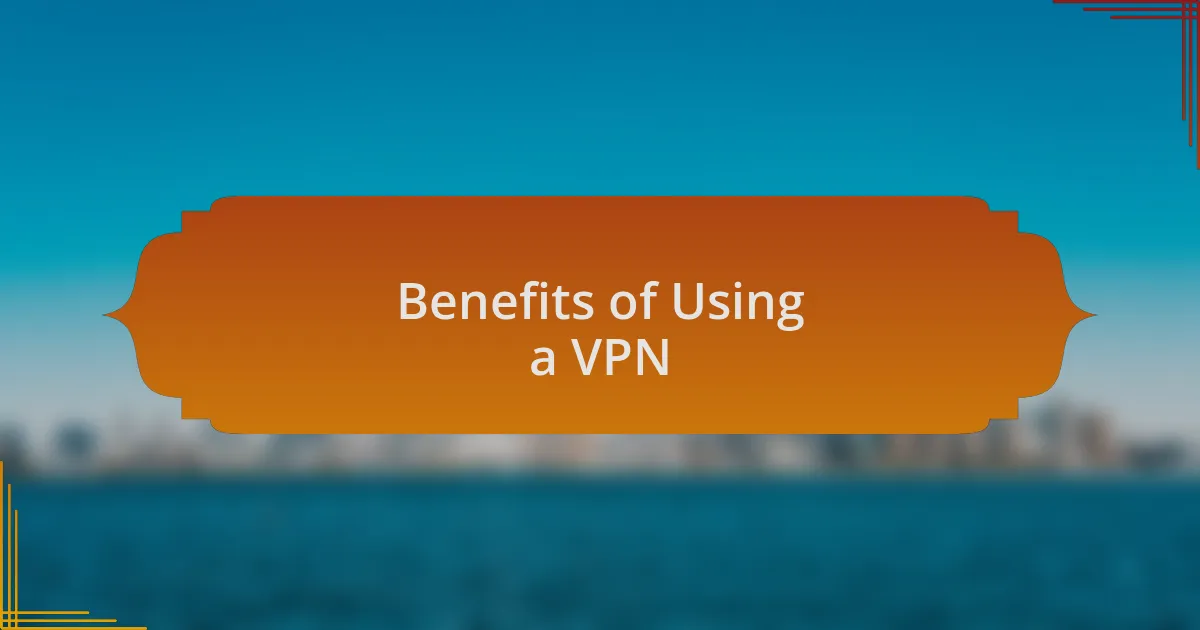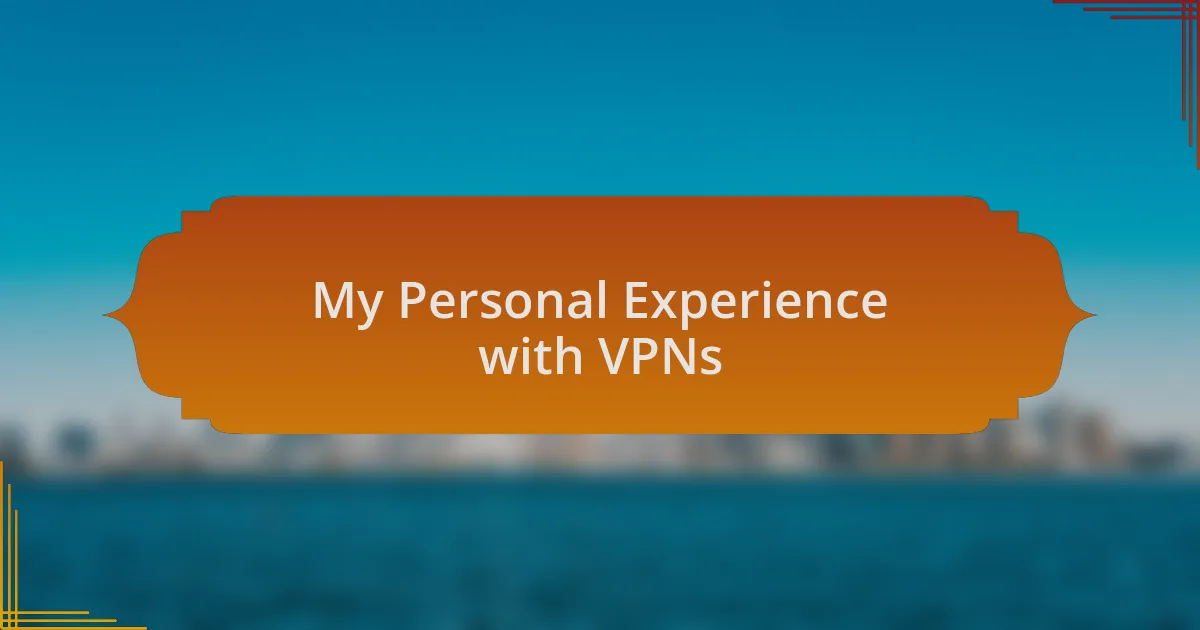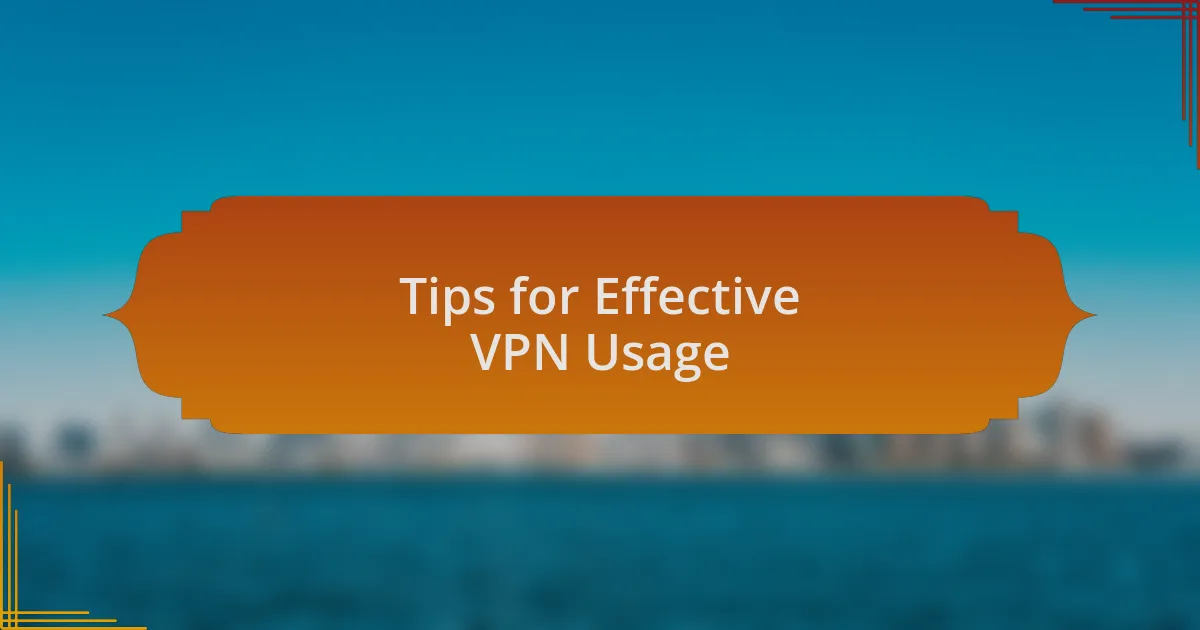Key takeaways:
- Urban Telematics Networks enhance city planning through real-time data, improving traffic management and resource allocation.
- Using a VPN protects online privacy by encrypting data, preventing tracking, and allowing access to geo-restricted content.
- Effective VPN usage includes selecting nearby servers for better performance and keeping the software updated for maximum security.

Understanding Urban Telematics Networks
Urban Telematics Networks are an intricate web that connects various data sources within urban environments. Through a combination of sensors, IoT devices, and communication technologies, these networks gather real-time information about traffic patterns, air quality, and even public safety. Isn’t it fascinating how this technology can transform our daily lives by providing data-driven insights that shape city planning?
When I first delved into the concept of urban telematics, I was struck by the sheer potential it holds for enhancing our communities. For instance, imagine a city where real-time data leads to smarter traffic management, reducing congestion significantly. It’s not just about convenience; it’s about creating a more livable, sustainable urban space. Can you picture the difference this could make in reducing our carbon footprint?
Moreover, the integration of urban telematics extends beyond just transportation. It encompasses areas like energy consumption and resource allocation, leading to increased efficiency. I once attended a city council meeting where the discussion centered around using telematics data to improve public transport routes. Witnessing that powerful conversation made me realize how essential these networks are for fostering collaboration among city stakeholders and enhancing our collective quality of life.

How VPNs Enhance Online Privacy
Using a VPN is like having a secure tunnel for your online activity, which keeps prying eyes at bay. I remember when I first started using a VPN; I felt an immediate sense of relief knowing my browsing data wasn’t being tracked by advertisers or even my internet service provider. It’s empowering to think I can freely explore the web without leaving a digital trail behind.
Moreover, VPNs encrypt your internet connection, making it nearly impossible for cybercriminals to intercept your sensitive information. The first time I connected to public Wi-Fi at a café, I was oblivious to the risks until I learned how vulnerable network connections could be. Using a VPN raised my awareness and provided a much-needed shield against potential threats—I no longer felt anxious about accessing my banking apps on the go.
Additionally, utilizing a VPN can prevent websites from tracking your location, enhancing your anonymity online. I often wonder how many people don’t realize that their online behavior is monitored so closely. After I started using a VPN, I felt liberated; it was like shedding a layer of skin that kept me exposed. This freedom to browse without fear of surveillance is something I genuinely value in an increasingly connected world.

Benefits of Using a VPN
Using a VPN allows me to access geo-restricted content, expanding my digital horizons. I still recall the moment I wanted to catch a show that was only available in another country. With just a few clicks connecting to a server there, I felt a sense of thrill as the content finally unlocked. It’s fascinating how a simple tool can transport you across borders, making the world feel just a little smaller.
Another important benefit I’ve found is the added layer of security when using public networks. I used to think nothing of checking my personal email or banking app while at a café, but then I learned how easily someone could intercept that data. Now, whenever I jump onto public Wi-Fi, I feel at ease knowing my information is encrypted. It’s almost like having a security guard watching over me, allowing me to enjoy my coffee without the worry of data theft lurking around the corner.
Lastly, I appreciate that VPNs can help bypass censorship. Reflecting on my experience when traveling to a country with strict internet regulations, I was initially disheartened to find I couldn’t access my favorite sites. Once I activated my VPN, I felt a wave of relief wash over me. It’s not just about accessing content; it’s about reclaiming my right to information in a world where that access can be easily restricted. How liberating is it to break those invisible barriers?

My Personal Experience with VPNs
There was a time when using a VPN felt like a technical hurdle I had to overcome. The first time I set one up, I was a bit nervous, unsure if I was doing everything right. But after successfully connecting, I felt a sense of empowerment wash over me. I could browse freely, knowing my digital footprint was obscured.
On another occasion, I faced a frustrating situation while trying to access a live stream of an event I was deeply interested in. When I realized it was region-locked, I felt a twinge of disappointment. However, once I activated my VPN and connected to a server in a different country, I’ve never felt such a rush of excitement. It was as if the barriers that once confined my interests melted away, allowing me to join the experience in real-time.
Not all experiences were smooth sailing, though. I remember a time when a connection dropped mid-surf. It left me feeling anxious about the potential risks of my unprotected data. That moment taught me the importance of choosing a reliable VPN provider whose performance is consistent. I realized that the peace of mind VPNs promised is only as good as the technology behind them. Isn’t it comforting to know your choices can significantly influence your online safety?

Tips for Effective VPN Usage
When using a VPN, it’s essential to choose a server close to your location. I recall the first time I connected to a server on the other side of the world. The speed was noticeably slower, and I felt that frustrating lag. I learned that proximity often optimizes performance, allowing for a smoother browsing experience.
Another tip is to toggle your VPN connection on before accessing sensitive websites, especially when using public Wi-Fi. I once made the mistake of forgetting to activate my VPN while in a crowded café. I enjoyed my coffee but felt uneasy about potential prying eyes on my data. Trust me, a moment of oversight can lead to unnecessary worry about security.
Lastly, keep your VPN software updated to benefit from the latest security protocols. I often forget this simple step, but it’s vital for maintaining privacy and security. Just like I wouldn’t let my antivirus software fall behind, I now prioritize regular updates. Have you considered how a few extra minutes can fortify your online protection?